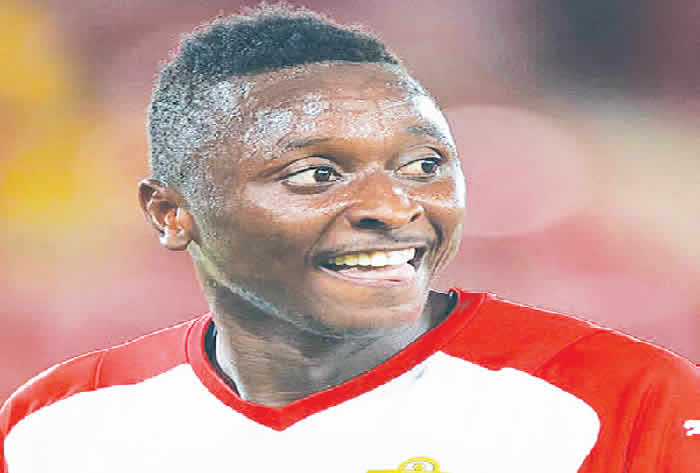Umar Sadiq’s recent inclusion in the Super Eagles roster for the upcoming 2025 Africa Cup of Nations Group D qualifying matches against Benin Republic and Rwanda has ignited a wave of discussion among Nigerian football stakeholders. The Real Sociedad striker has struggled for consistent playing time in the Spanish La Liga, having only appeared in six matches this season, most of which have been as a substitute. His inclusion on the national team’s list drew criticism from many who believe he has not earned his spot due to his lack of performance, especially given that other strikers, such as Tolu Arokodare—who has played thrice as many matches with impressive stats at Genk—were overlooked. The contrasting views on Sadiq’s call-up reveal deeper tensions and debates about selection criteria and the state of Nigerian football representation.
David Doherty, a UK-based sports administrator, vocalized discontent with the selection process, questioning coach Augustine Eguavoen’s rationale behind including Sadiq. He pointed out that Sadiq’s disappointing form this season, without a single goal to his name, makes it difficult to justify his place over in-form players like Arokodare. This frustration reflects a broader concern regarding how players are selected to represent the national team, calling for transparent criteria that prioritize current performance and form over other factors that may influence selection.
On the other side of the argument, some stakeholders defend the coach’s decision to include Sadiq. Sa’eed Olamilekan Bello emphasized the importance of supporting coaching decisions rather than engaging in constant criticism. He argued that being selected for the national team should also consider the player’s potential to perform at that level, regardless of their current club situation. He compared the situation to English coach Gareth Southgate’s commitment to players like Harry Maguire, who continued to receive call-ups despite being out of form at their clubs. This perspective encourages a more holistic view, allowing for the possibility that players can elevate their game when representing their country, thus justifying a broader range of selections.
Participants in the discussion also touched on the topic of merit versus connections in national team selections. Ay Adetayo insinuated that perceived favoritism or inappropriate practices might influence the selection process for the Super Eagles, highlighting a notion that players may need to navigate certain social dynamics to secure their spots. Conversely, Canice Dim urged patience with Sadiq, positing that past accolades should not be overlooked despite a temporary downturn in form. He referenced Peter Ijeh, a former goal-scorer who underperformed for the Super Eagles despite prior success, suggesting that national-level success cannot always be assumed from club-level performance.
Amid the debate, the underlying sentiment revealed a deep investment in the national team’s success, with varied opinions based on experiences and expectations of player performance on a grander stage. The stark divide in perspectives reveals not only differing views on individual players like Sadiq and Arokodare, but also highlights the complex fabric of ambition, talent, and the struggles inherent in representing a nation on international fronts. Collectively, these voices suggest a longing for clarity, integrity, and success in Nigeria’s pursuit of footballing excellence.
The ongoing debate about the Super Eagles’ selection for the upcoming qualifiers serves as a microcosm of the larger challenges facing Nigerian football. This discussion reflects concerns over accountability in coaching decisions, and the criteria for evaluating player eligibility on merit and form. As the national team prepares for significant fixtures, the resolution of these conflicts could play a pivotal role in shaping the landscape of Nigerian football—both in the immediate future and in the long term. Ultimately, the dialogue surrounding Umar Sadiq’s invitation emphasizes the critical intersection of talent, performance, and the complexities of national representation in sports.














